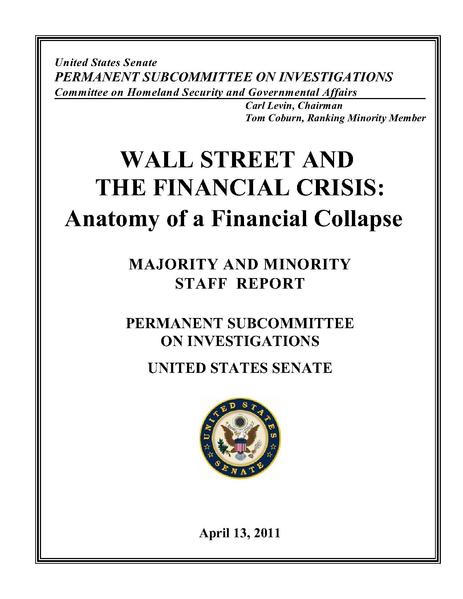Lots to report. A media release went out Wednesday announcing the publication of the paperback of my new book, New Yorkers: A Feisty People Who Will Unsettle, Madden, Amuse and Astonish You, now available from Amazon.
New Yorkers has received its first review, a five-star Readers' Favorite editorial review by K.C. Finn, who calls it "a loving and modern master work on the Big Apple" and highly recommends it.
My Goodreads giveaway of 100 Kindle ebooks of New Yorkers, which ends on March 22, has now attracted requests by 268 people.
New Yorkers is now in BiblioBoard, a collection of books by local indie authors available to patrons of participating libraries throughout New York State.
Thanks to the coronavirus brouhaha, the stock market is in free fall, plummeting precipitately. This would seem to be the result of the too-much-ness chronicled in my post #449, "Can Super-Talls Survive?" I make no claim to have foreseen the virus, nor do I anticipate any super-tall collapsing. It's all about a state of mind, a yielding to perilous excess, that is now being chastised by a totally unforeseen event. How it will finally play out, I do not claim to know; time will tell. But speaking of excess, let's have a look at Deutsche Bank.
Deutsche Bank:
Adventures in Cloud Cuckoo Land
Deutsche Bank has joined Monsanto, Goldman Sachs, Big Pharma, and Big Tobacco in my Corporate Hall of Shame. I had always thought of it as a big foreign bank, possibly linked to the German government, but one neither better nor worse than the other banks whose misdeeds and poor judgment brought on the financial crisis of 2008 and the resulting Great Recession. But it now turns out that there is much more to the story than that.
 |
| Deutsche Bank in New York today. At first glance, no hint of trouble. Ajay Suresh |
Founded in Berlin in 1870, it devoted itself for decades to promoting abroad the commerce of the newly united Germany. Yes, under Hitler it committed a few naughty follies, like pressuring corporate clients to get rid of Jewish directors, and helping finance the construction of Auschwitz. Let’s be charitable and grant that they may not have known the camp’s ultimate purpose, thinking it just a nice little re-education camp for dissidents. In other words, it didn’t ask questions. But after the war it helped Germany, with its cities and industry in ruins, recover in the postwar Wirtschaftswunder, the economic miracle that let Germany rejoin the great industrial powers of the world.
 |
| Deutsche Bank's logo. As simple as its dealings were complex. |
So far, so good. But it is now a fact that Deutsche Bank has been up to its moneyed ears in every banking scandal of recent times, as for instance:
- Interest rate manipulation
- Russian money laundering
- Dubious currency dealings
- Hidden derivative losses
To which can be added financing the Donald inspite of his repeated defaultings, and a murky high-level suicide. What happened?
As late as the 1980s, Deutsche Bank was solid, stable, and free from scandal. It had no CEO excesses, for it had no CEO, being run by a board. But in the 1990s, as the West began deregulating markets, profits from trading soared, and Deutsche Bank wanted in. In 1995 it hired Edson Mitchell of Merrill Lynch, who immediately began peddling derivatives —these strange new financial entities that people foreign to Wall Street (like myself) cannot begin to understand. Derivatives were new and risky, but risky for the clients, not for the traders. The prudence and stability that had long characterized the bank began to look quaint, dated, and old-fogyish. Deutsche wanted to join the Wall Street party, and as profits rolled in, it peddled more and more risky mortgages to clients of dubious credit ratings.
Significantly, one executive now bragged that he didn’t even need clients: why bother doing loans when you can trade derivatives? Like so many big banks, Deutsche was vaulting into a financial cloud cuckoo land. Its new CEO, Swiss-born Josef Ackermann, was obsessed with short-term profits, and his traders soon realized that all controls were off, that it was okay not just to offer customers risky deals, but even to cheat them plain and simple. Whatever trading they did, they offered no product or useful service to anyone, and much of the time were simply moving money around, while pocketing hefty fees for doing so.
Almost unbelievable were the bank’s dealings with
pre-presidential Donald Trump, then simply a real estate operator, but one whose Atlantic City casinos had a way of going bankrupt, with resulting distress to employees and investors, but not to him. Deutsche’s real estate division finally severed relations with him, because of his lying about his net worth so as to get loans. Did that end the bank's relations with him? Not at all. Whether aware of the real estate division's severance or not, Deutsche's private banking division loaned Trump $48 million to cancel a real-estate debt that he had defaulted on: one team wanted no more of him, so another team picked up the tab. The bank’s general counsel asked, “What the hell are we doing lending money to a guy like this?” But the higher-ups didn’t listen.
One derivatives trader made so bold as to question the bank’s risky trades and wondered how its actions benefited its clients. But he drank too much and in the end hanged himself, his suicide a mystery to this day.
The result of all this? When the real estate bubble burst and panic followed on Wall Street, Deutsche Bank’s capital was wiped out and its stock price plummeted. A layman like myself can’t begin to decipher the complex maneuverings that followed. Suffice it to say that Deutsche Bank proved to be one of the greediest and most foolhardy operators of the time, with consequences unfolding to this day. Among those consequences:
- former employees denouncing the bank’s policies
- allegations of tax fraud, resulting in convictions of six employees
- admission of covert espionage on its critics over a period of years
- CEOs resigning
- vast losses and thousands of layoffs
- in 2018, a raid on the bank’s Frankfort offices by the police, who were investigating laundering and other activities
- a $7.2-billion settlement with the U.S. Department of Justice for dealing in toxic mortgage securities.
And these are only some of its problems. But multi-billion-dollar corporations don’t die easily. Deutsche Bank still exists, and its stock is traded on the New York and Frankfort stock exchanges.
 |
| A 2011 Senate subcommittee report on the financial crisis. Such investigations boded ill for Deutsche Bank. |
Deutsche’s story, told here only in part, reinforces the repeated assertion of the rebellious youth of the 1960s:
Corporations have no souls.
Certainly Deutsche Bank didn’t.
Source note: This post was inspired in part by Roger Lowenstein’s article “What Broke Deutsche Bank,” in the Book Review section of the New York Times of Sunday, March 1, 2020. Many of the facts cited here come from this review of David Enrich, Dark Towers: Deutsche Bank, Donald Trump, and an Epic Tale of Destruction.
Coming next: "Mountains: They Entice, Delight, Kill."
© 2020 Clifford Browder
No comments:
Post a Comment